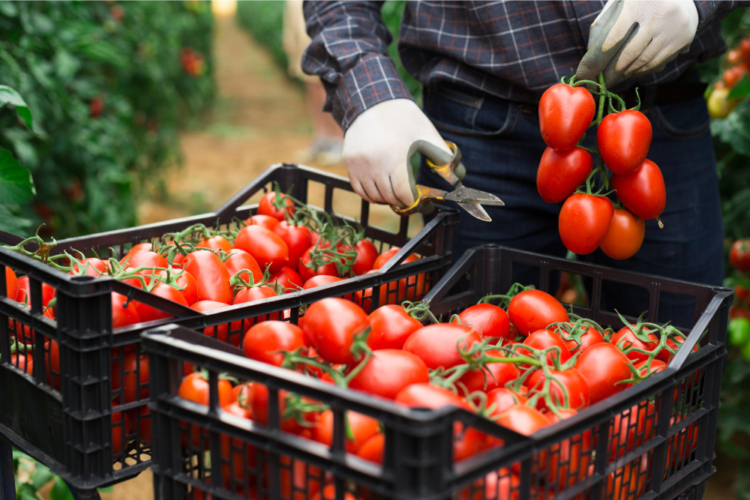Food traceability is a critical component of the produce supply chain. Most often today, information about the quality, contents and origins of each shipment is captured on labels. However as traceability requirements in the produce industry grow under the FDA’s Food Safety Modernization Act (FSMA) Section 204, recordkeeping and tracking processes will need to grow, too.
The FSMA 204 food traceability rule applies to items on the FDA’s Food Traceability List (FTL), like lettuce, tomatoes and cut fruits and vegetables. The FDA has made it clear that what’s on the FTL isn’t the end of the list; it’s only the beginning which is especially daunting since produce is often most impacted by traceability. And for produce suppliers already struggling to manage complex and evolving regulations, data management and supplier collaboration, all under tightening operating budgets, it’s critical to be prepared and have the right systems in place for new and future regulations. Here’s what you need to know.
Understanding the Limitations of Current Traceability Methods
Many suppliers rely on case labels for traceability information. However, the benefits of case labeling stop at the door of the wholesaler or retailer distribution center. To comply, produce suppliers need to establish a food traceability plan, documenting the procedures by which FSMA 204 traceability information is exchanged and maintained. That information must contain Key Data Elements (KDEs) like harvest location or lot number for each Critical Tracking Event (CTE) in that product’s path through the supply chain. In addition, that information must be exchanged each time the product changes hands or changes form.
The Need for Advanced Traceability Technology
Advanced traceability technology offers a comprehensive solution to meet the requirements of FSMA 204 and achieve complete supply chain traceability for produce suppliers without disrupting existing operations.
You need a solution that:
- Provides a complete picture of your product’s journey from farm to fork.
- Enables you to quickly identify and remove potentially contaminated products from the market.
- Reduces your risk of foodborne illness outbreaks and recalls.
- Allows for more efficient communication and collaboration among other suppliers and partners along the food chain.
To comply, produce companies would benefit from a complete supply chain traceability solution that can track shipments at the individual item level, seamlessly integrates with existing workflows, and that can communicate downstream to their restaurant, retail or wholesale customers.
Introducing ReposiTrak: A Solution Designed for Produce Suppliers
That’s where ReposiTrak comes in. ReposiTrak is a cloud-based platform that provides comprehensive traceability solutions for produce suppliers.
ReposiTrak can help you:
- Capture and store all the data elements required by FSMA 204 for each critical tracking event (CTE) in your supply chain, such as growing, harvesting, packing, shipping, receiving, transforming or creating a product.
- Connect with your trading partners and share traceability information securely and efficiently using any format or protocol.
- Track and trace your products across multiple trading partners and locations using unique identifiers such as GS1 labels or QR codes.
- Provide visibility to your product’s pathing using dashboards and reports, including the sortable spreadsheet capability required by the FDA.
By leveraging existing systems and processes, ReposiTrak seamlessly integrates into produce suppliers’ workflows, minimizing the need for additional labels or technology.
A More Efficient Traceability and Compliance System for Food Suppliers
Achieving total supply chain traceability is a concern for produce suppliers in light of FSMA 204 regulations. But it’s not too late to start. While current traceability methods like GS1 labels and the PTI have made significant strides, they may fall short of meeting these new, more comprehensive traceability requirements.
Contact ReposiTrak today to learn how our solutions can help you meet and exceed the FDA’s FSMA 204 requirements.

